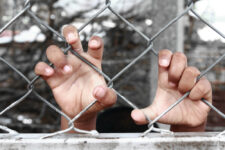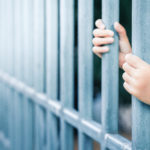ACT Will Raise the Age of Criminal Responsibility

The Australian Capital Territory has become the first jurisdiction in Australia to raise the age of criminal responsibility from 10 years of age to 14.
The move brings the age in line with international standards recommended by the United Nations.
While the ACT Legislative Assembly supported the motion, the legislation is still being tweaked, to make considerations around medical evidence on cognitive capacity of children over 14, and options to shift the age or provide exemptions for more serious criminal offences.
The legislation is, however, expected to be finalised shortly and enacted by whichever parties form government in the ACT after the October election.
The great debate
Around the rest of Australia, the age of criminal responsibility is 10 meaning that children this age can currently be prosecuted, convicted and sentenced to juvenile detention. We are only one of a few countries with the age of criminal responsibility still set so low.
For many years campaigners have been working to raise this age to 14. These include the United Nations Committee on the Rights of the Child which says that adolescence is ”a unique defining stage of human development characterised by rapid brain development” affecting decision making and the ability to control impulses and therefore, the minimum age of criminal responsibility should be raised to ‘at least 14’”.
Amnesty International, the Law Council of Australia, and the Australian Medical Association have also backed an increase in the age of criminal responsibility, along with various Aboriginal legal, health and community services groups who have a special interest in the issue because Indigenous children are far more likely to be sentenced to detention than non-indigenous children.
The plight of Indigenous kids
A Productivity Commission Report in January this year, showed that Aboriginal youth are being detained at a rate 23 times that of non-Indigenous young people in the justice system.
During 2018/19 the average daily detention rate for Aboriginal and Torres Strait Islanders between the age of 10 and 17 was more than 30 per 10,000, compared to 1.4 per 10,000 for non-Indigenous youths. And the majority of them are young men.
Being ‘tough on crime’ doesn’t work
While politicians have long postured around with the view that there’s a need to ‘be tough on crime’ a growing body of research (that began some decades ago) shows that locking up children does very little to avert them from crime. In fact, it often does the opposite, trapping them into a destructive and dysfunctional cycle for life. One spent in and out of the criminal justice system.
What’s more, we also have proof that justice reinvestment and diversion programs along with culturally sensitive rehabilitation and circle sentencing are much more effective in both keeping kids out of the justice system in the first place, and stopping them from re-offending.
The Aboriginal Legal Service says that detention can be exceptionally traumatising, and that Aboriginal children as young as 10 are targeted and taken into custody, at risk of being taken to a barbed wire facility, strip-searched on entry, given limited access to peers, teachers and the support and resources required to help them understand how to make better choices, and eventually, a better life for themselves.
We know too well, from the Law Enforcement Conduct Commission’s inquiry into strip searches that the psychological effects of this alone are intrusive, humiliating and damaging. Strip searches are a significant violation of a person in circumstances where they have no control.
These are children. And we must not also forget that they are children who tend to come from backgrounds that have severe deficiencies across the spectrum of emotional, educational, social and financial support to begin with.
We only further disadvantage them when we traumatise and isolate them, when we should provide guidance and help.
After the shocking evidence presented to the The Royal Commission into the Protection and Detention of Children in the Northern Territory, the Commission’s final report made several recommendations for reform including a move towards prevention, diversion and rehabilitation, as well as raising of the age of criminal responsibility.
At the time, many professionals working in the legal system hoped that the recommendations would eventually be adopted nation-wide to stop the abuse and institutionalisation of young people.
Blueprint for other states and territories
And while the ACT parliament agreed that “there is desirability of national consensus on the minimum age of criminal responsibility, it does not prevent a jurisdiction from making an independent decision to raise the age.
The legislative motion explained “ keeping young people safe and diverting them from the justice system was a whole-of-government and whole-of-community responsibility.”
In the meantime, while the other states and territories continue to keep the status quo, the ACT should be applauded. A recent national push to raise the age came to a standstill after state, territory and federal attorneys-general determined more work needed to be done to find alternatives to dealing with young offenders. It’s expected discussions will resume again sometime next year.







